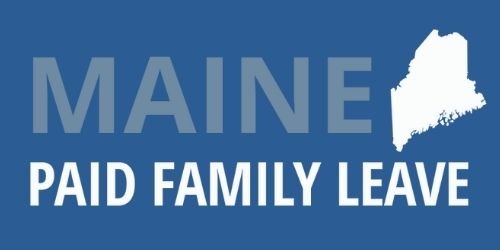Emer’s Story
The first time I used family medical leave, my mother, Cynthia Smith, was dying of cancer. I worked in an entry-level position, and while I had access to use paid leave to help my mother, it was at a very low level and incredibly slow to accrue.
It was painful to balance how much time my mother had left while making sure I had enough time saved up to afford my household expenses. It's hard enough losing a parent without continually having to mentally account for finances and work obligations.
The second time was for the unexpected early arrival of my daughter, Maeve in January 2021. After 28 weeks of a relatively smooth pregnancy, I needed an emergency C-section to save both my and my baby’s life. I spent the next 6 weeks recuperating, and our little warrior queen spent 12 weeks getting stronger at Maine Medical Center’s NICU and Continuing Care Nursery.
When you have a premature infant, you learn to take each moment at a time because nothing is guaranteed - one minute your baby is thriving, and the next nurses are rushing in to revive them because their heart rate decelerated. Everyone dreams of finally taking their baby home, but with a preemie – you don't know how much support your child might need when they leave the hospital. While Maeve was growing stronger, learning to breathe on her own, and learning how to eat, I had two choices: I could use my last 6 weeks of paid family medical leave while Maeve was still hospitalized or save the time for when she came home. I made the difficult choice, and I returned to work. I'll be honest - the work I performed during that time was not my best - and who could blame me when my heart and mind wasn't with my job.
After 12 weeks at Maine Med, Maeve was discharged home with a nasogastric tube, and she required tube feedings every 4 hours. My partner and I were staring at a very uncertain future home visits, therapies, and specialists appointments, worrying if our child care provider would be able to meet her needs, wondering if we'd have to find someone new to care for her, what we'd do if we couldn't find child care - all while balancing the exhausting schedule of round-the-clock breast pumping to feed Maeve and newborn care. Thankfully I had the means to take 6 weeks more of unpaid time off. While I was home with her, Maeve began to thrive and started eating without the tube. She started daycare 12 weeks after her discharge without complications. Our little NICU warrior queen is now a happy healthy teething baby who delights us every day.
I recognize that my story is one of immense privilege. I have a stable job that provided me with leave so I could recover physically and mentally from the traumas I and my family endured. I had the financial privilege to cover additional time off unpaid. I never anticipated having a baby show up 2 and a half months early - and neither does the current system.
Most families do not get to make these choices. I cannot impress upon you how hard it is to leave your baby, or your parents, or your loved one behind because you have to work not knowing if that will be the last day that you see them.
Paid leave should support our workforce during their most vulnerable moments and should apply to anyone regardless of what type of work they do, who they work for, their gender, or who they are providing care for. We cannot pretend that Maine is truly "the way life should be" without paid leave. I fervently hope that no one will have to make the choice between work, health, and family the way that I have. But without paid leave, the people of Maine make these choices every day.
Have a story to tell? Visit our paid leave story form and join the conversation!

